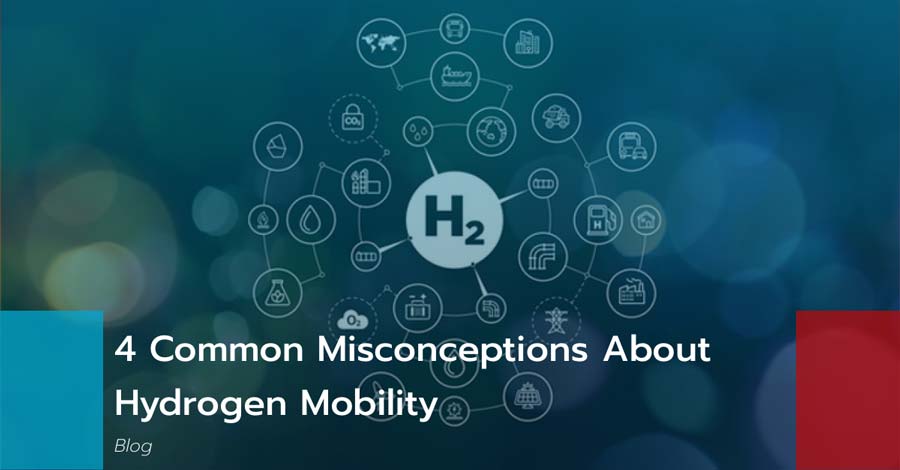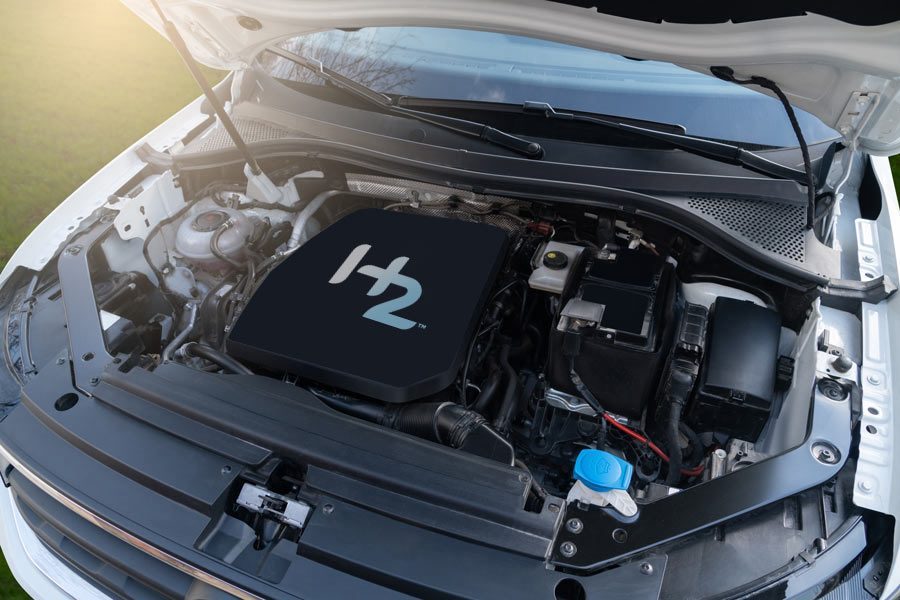4 Common Misconceptions About Hydrogen Mobility
By: GenH2 Staff
Read Time: 4 minutes

Hydrogen will never have a real…
1.place in the transportation industry
To challenge that misconception – in many ways, the Hydrogen Age is Now. The use of hydrogen-powered transportation is already well underway. For example, one of the first trains powered by hydrogen fuel cells, Alstom’s Coradia iLint, is now being tested in many countries. The trains are equipped with fuel cells to convert hydrogen and oxygen from air into electricity, and have a range of approximately 1,000 kms. In the cruise industry, Carnival Corporation-owned German cruise line AIDA Cruises announced its partnership with leaders from the maritime and engineering sectors, to pilot the world’s first fuel cell system designed to power large passenger vessels, and plans to test this technology as early as this year. For road transport, companies such as Van Hool, Hyundai, Siemens and Toyota are already working on the production of hydrogen-powered buses, lorries, trains and cars.
2. Only battery electric vehicles have a future
Although BEVs are currently leading the charge among electrically-powered vehicles on the road, Fuel-Cell Electric Vehicles (FCEVs) are now finally hitting the market. Experts agree that once the infrastructure is in place for hydrogen vehicles, battery-electric vehicles and fuel cell systems will together pave the way for emission-free mobility worldwide. According to the Department of Energy, there are about 41,400 EV charging stations in the United States right now, and as of mid-2020, there were only 43 retail hydrogen stations available nationwide, mostly concentrated in California. However, efforts are underway to expand hydrogen fueling locations in Hawaii and across the East coast – with other markets expected to develop, as consumer demand increases. Innovations from the world’s leading hydrogen companies like GenH2 have made breakthroughs in the development of hydrogen infrastructure and historic global commitments, such as those agreed upon during the G7 meeting, which guarantee that advancements in hydrogen infrastructure will only continue.
3. Hydrogen technology will only be used for industrial applications
Although over 90 percent of hydrogen is currently used in industrial applications, the hydrogen economy is still in the very early stages of development, and the potential applications for trucks, buses and car fleets are developing at a rapid pace. A joint study by the Fuel Cells and Hydrogen Joint Undertaking (FCH JU) has identified a market readiness for fuel cell buses and forecasts rapid growth in the market for on-road vehicles with cargo capacity (for example vans and taxis) by 2025 – and for broad truck use by 2030. The study predicts that up to 40 percent of all new heavy-duty trucks sold will be hydrogen-powered by 2050, and estimates that 233 million hydrogen vehicles will be on the market by 2050 in Europe alone.
4. Hydrogen powered vehicles will never be as cool as their gas-powered counterparts
Back in 2018, 24 Hours of Le Mans introduced MissionH24 with the goal of bringing 100 percent hydrogen-powered racing car prototypes to the starting line at Le Mans. In fact, the plans for the GreenGT LMPH2G prototype are fully laid out for all to behold. Like other green hydrogen vehicles, the only emission produced by the GreenGT LMPH2G is water, and like with all hydrogen transport, the possibilities are bright for the future.
 Copyright All Rights Reserved GenH2
Copyright All Rights Reserved GenH2
 Copyright All Rights Reserved GenH2
Copyright All Rights Reserved GenH2